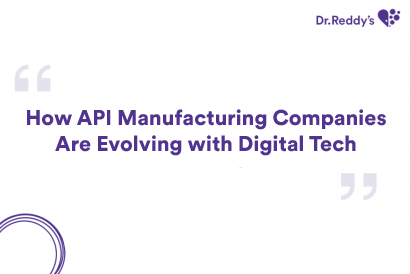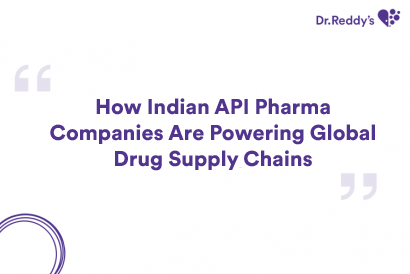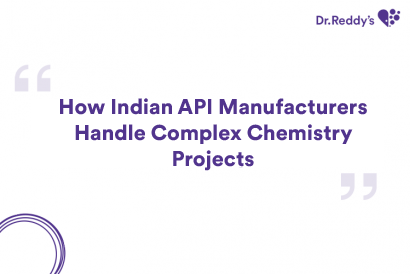The Future of API Manufacturing: Automation, AI, and Sustainability
The active pharmaceutical ingredient industry is undergoing a transformative shift. As global demand for high-quality medicines continues to rise, manufacturers are embracing cutting-edge technologies to enhance efficiency, reduce environmental impact, and ensure consistent quality. This article explores how automation, artificial intelligence (AI), and sustainability are reshaping the future of API manufacturing.
Automation in API Manufacturing
Automation is revolutionizing the way APIs are produced. Traditional batch processes are being replaced by continuous manufacturing systems, which offer several advantages:
- Improved Efficiency: Automated systems reduce manual intervention, speeding up production cycles.
- Enhanced Precision: Robotics and programmable logic controllers (PLCs) ensure consistent process parameters.
- Reduced Human Error: Automation minimizes variability and improves reproducibility.
- In the active pharmaceutical ingredient industry, automation also supports real-time monitoring and control, enabling manufacturers to detect deviations early and maintain product quality.
AI-Powered Process Optimization
Artificial Intelligence is becoming a game-changer in API manufacturing. AI algorithms analyze vast datasets from production lines to identify patterns, predict outcomes, and optimize processes. Key applications include:
- Predictive Maintenance: AI can forecast equipment failures, reducing downtime and maintenance costs.
- Process Modeling: Machine learning models simulate chemical reactions, helping chemists refine synthesis routes.
- Quality Control Enhancement: AI-driven image recognition and sensor data analysis improve defect detection and reduce waste.
- By integrating AI into manufacturing workflows, the active pharmaceutical ingredient industry is moving toward smarter, more agile production environments.
Sustainability in API Manufacturing
Environmental sustainability is no longer optional—it’s a strategic imperative. The API manufacturing process often involves hazardous chemicals and energy-intensive operations. To address these challenges, companies are adopting:
- Green Chemistry Principles: Designing chemical processes that minimize waste and use safer reagents.
- Solvent Recovery Systems: Recycling solvents to reduce environmental impact and operational costs.
- Energy-Efficient Equipment: Implementing technologies that lower energy consumption and carbon footprint.
Sustainability initiatives not only align with global environmental goals but also enhance brand reputation and regulatory compliance in the active pharmaceutical ingredient industry.
Regulatory and Industry Implications
As automation, AI, and sustainability become integral to API manufacturing, regulatory bodies are updating guidelines to reflect these advancements. Manufacturers must ensure that new technologies comply with Good Manufacturing Practices (GMP) and data integrity standards. Industry collaborations and public-private partnerships are also fostering innovation, with shared platforms for AI development and green technology adoption.
Continuous Manufacturing: The Future Standard
Traditional batch processing is being replaced by continuous manufacturing, which offers:
- Higher efficiency and reduced production costs.
- Improved scalability and faster time-to-market.
- Enhanced product consistency through real-time quality monitoring.
- This shift is supported by both automation and AI, creating a seamless, data-driven production environment.
Key AI Impact Statistics in API and Pharma Manufacturing
Economic Value:
AI is projected to generate between $350 billion and $410 billion annually for the pharmaceutical industry by the end of 2025. This value comes from improvements in drug development, clinical trials, precision medicine, and commercial operations.
Adoption Rate:
- 80% of pharmaceutical professionals now use AI in drug discovery workflows
- 95% of pharma companies are actively investing in AI capabilities
Efficiency Gains:
- AI has been shown to reduce clinical trial costs by up to 70%.
- Development timelines have been cut by as much as 80%, significantly accelerating time-to-market
Market Growth:
The global AI in pharmaceuticals market is valued at $1.94 billion in 2025 and is expected to grow at a CAGR of 27%, reaching $16.49 billion by 2034
- AI has been shown to reduce clinical trial costs by up to 70%.
- Development timelines have been cut by as much as 80%, significantly accelerating time-to-market
Specialized Applications:
- AI in cancer diagnostics is growing at a CAGR of 40.1%.
- AI in genomics, crucial for precision therapeutics, is expanding at 52.7% CAGR.
These statistics highlight how AI is not just enhancing R&D but also transforming API manufacturing by optimizing synthesis routes, improving quality control, and enabling predictive maintenance.
Conclusion
The future of the active pharmaceutical ingredient industry lies in embracing innovation. Automation streamlines operations, AI unlocks new efficiencies, and sustainability ensures long-term viability. Together, these pillars are shaping a smarter, cleaner, and more resilient API manufacturing landscape
- Call us:
 +91 40 49002253
+91 40 49002253
Contact Us
Rellene el siguiente formulario y nos pondremos en contacto con usted a la brevedad.




